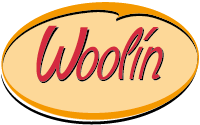Frequently asked questions
…about sheep´s wool
There are many advantages of Woolin insulation materials, the most important are:
Sheep’s wool can absorb moisture without losing its insulating properties.
Sheep’s wool neutralizes air pollutants such as formaldehyde, ozone and other indoor toxins, thus ensuring a healthy indoor climate. Sheep’s wool is absolutely safe, for the consumer and the environment. Installing sheep’s wool insulation creates no fine dust.
Only for our new insulatin panels, we add 15% recycled PET to generate a greater stability. The PET is reused and does not alter or dimish the features of the new wool. Its only purpose is to increase the stability of the soft wool fibers, which makes it possible to use the panels as clamping felt.
TGM – Research institute Vienna
MA 39 – Certifying body of the City of Vienna
EPH – Development and testing laboratory Wood Technology Dresden
STROHL ENGINEERING GmbH – State authorized laboratory for technical noise measurements
INSTITUTO GIORDANO s.p.a. – Bellaria, Italy
EMPA – Swiss Federal Laboratories for Materials Science and Technology
